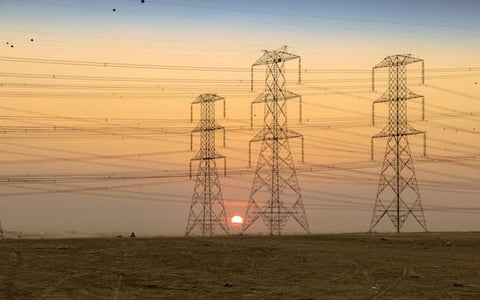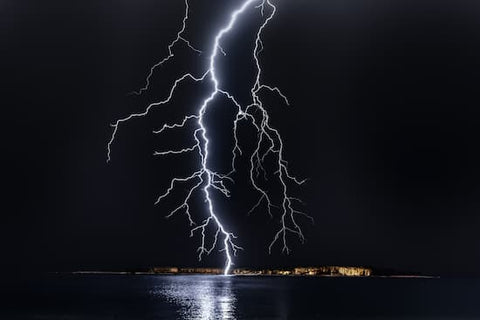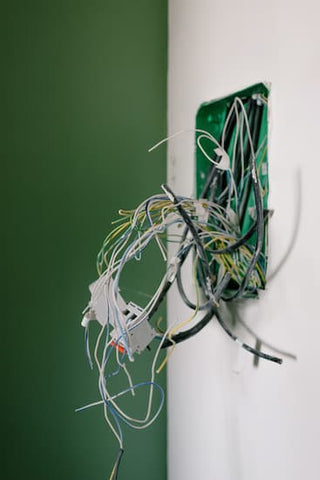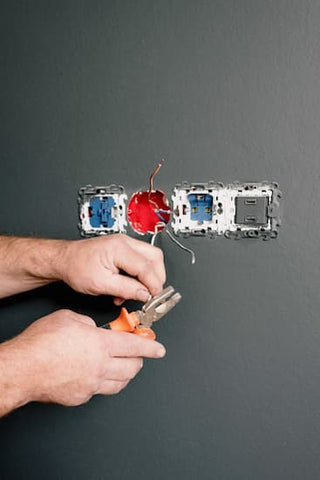
Surviving a Blackout: How Long Does Power Outage Last?
A power outage, also known as a blackout, is an event when electrical power goes out suddenly. More often than not, it disrupts communication and business operations, as well as affects financial gains. As such, it is not surprising that people experiencing power outages often feel frustrated and ask questions such as how long does power outage last?

If you often experience power outages and currently looking for answers to your questions, this post is for you. Today, we answer your frequently asked questions about power outages, from their causes to solutions.
Causes of Power Outages

Oftentimes, the answer to the query, how long does power outage last, is related to the cause. Depending on the cause, power outages may last for just a few minutes to days.
Below we get into more detail about the most common causes of power outages.
1. Natural Disasters
Hurricanes, earthquakes, and floods are just some of the natural disasters that can cause blackouts. During the occurrence of these natural disasters, electric companies tend to turn off power to prevent potential hazards. In some cases, the power suddenly shuts down due to damage to power lines.
In the event of a natural disaster, electricity is often restored once the situation becomes moderate. However, if there are damages such as broken power lines, the electric company may need more time to fix them and restore power. This may take a couple of days to weeks depending on the damage.
2. Heavy Rains and Lightning
There are days when we experience heavy rains and lightning despite having no typhoons. In these occurrences, a power outage may take place. This is commonly due to damage to power lines by fallen trees or floods. Depending on the extent of the damage, the power may be restored within a few hours.
3. Mechanical Failure
Mechanical failures in power generation facilities, transformers, or transmission lines can cause sudden power outages. In these events, the power outage may last for hours as electricians and experts need time to inspect the machine and solve the problem.
4. Vehicular Accidents
Vehicular accidents do not just cause inconvenience on the road but may also cause power outages. When a car gets out of control and hit an electric pole, the collision can cause damage, potentially leading to a power outage in the surrounding area.
Additionally, the collision may result in the downing of power lines or exposed electric components, creating a hazard. When electric poles get damaged, the restoration of electricity can take days.
5. Maintenance
Devices in providing electricity such as the transformer and power lines require regular maintenance to ensure their accurate functioning and reliability. During this time, electric companies shut down power to ensure the safety of their crew.
Typically, maintenance works are announced along with other information such as the affected area and the duration of the maintenance.
Damage Assessment

As a result of a power outage, homes can suffer from a variety of damages that can range from minor to severe. It is important to assess any damage and take the necessary steps to repair it, not only to return your home to its pre-outage state, but to prevent any further issues that could result in safety hazards or expensive repairs in the future.
One common issue that arises during a power outage is flooding, particularly if the outage occurred during a storm. Without power to run sump pumps or dehumidifiers, water can quickly accumulate in basements and crawl spaces. This can cause damage to flooring, walls, and furniture, as well as create an ideal environment for mold growth.
Another issue that can arise during a power outage is damage to appliances and electrical systems. When power is restored, surges or fluctuations in voltage can occur which can damage electronics and appliances. In some cases, these systems may need to be replaced entirely.
In conclusion, power outages can cause a variety of damages to homes. Homeowners should take proactive measures to prevent and mitigate these issues.
How to Fix the Damage

Experiencing a power outage can be frustrating, but there are steps you can take to mitigate the damage and get things back on track. Here's a guide on how to fix the damage caused by a power outage:
Check the Circuit Breaker: Start by inspecting your circuit breaker panel. Look for any tripped breakers and reset them if necessary. A power surge during the outage may have caused a breaker to trip.
Assess Electronics and Appliances: Check your electronic devices and appliances for any signs of damage. If they don't power on or exhibit unusual behavior, unplug them and consult a professional for repair or replacement.
Reset and Reboot: Restart any devices that were active during the outage. This includes computers, routers, modems, and entertainment systems. Power cycling can help resolve minor issues caused by the sudden loss of power.
Test the HVAC System: If your heating, ventilation, and air conditioning (HVAC) system was affected, make sure to inspect it. Check the circuit breaker dedicated to the HVAC unit and ensure it's functioning correctly. If the system doesn't resume normal operation, contact an HVAC technician.
Evaluate Refrigerated Food: Examine the contents of your refrigerator and freezer. Perishable items that have been exposed to prolonged power loss may spoil. Discard any food that shows signs of spoilage or an unusual odor.
Consider Surge Protection: Install surge protectors or uninterruptible power supply (UPS) units to safeguard sensitive electronics and appliances from future power surges. These devices can help prevent damage during outages.
Contact Utility Provider: If the power outage caused significant damage or if you suspect an issue with the utility service, report it to your utility provider. They can provide guidance and address any infrastructure-related concerns.
Report Damage to Insurance: If the power outage caused significant damage to your property or belongings, contact your insurance company to report the incident and initiate the claims process.
How Can I Prepare for a Power Outage?
Power outages can happen anytime even on a bright sunny day. Hence, it is essential to always stay prepared and have an alternative power source like the Anker 757 Powerhouse.
Anker 757 Powerhouse is our flagship product with a 1229Wh capacity and 1500 wattage. It is suitable to use for all your essential devices and appliances such as electronic devices, small kitchen appliances, and even medical devices. It is also built with cutting-edge technology making it one of the most durable generators today lasting up to 10 years and more, even with regular use.
Furthermore, the Anker 757 Powerhouse has a fast-charge technology, HyperFlash, that allows it to recharge to 80% in just an hour. It also has 6 AC ports, 4 USB-A ports, 2 USB-C ports, and a car outlet so you can plug in all your devices into one power source. It is worth mentioning that its USB-C port has a fast charging 100W capability which can fully charge your laptop device in a very short time. On top of those, we offer a 5-year full-device warranty instead of an average of two years. This warranty protects the rights of buyers and gives you assurance of product reliability.
In conclusion, the duration of a power outage can vary depending on the cause and circumstances surrounding it. Power outages caused by natural disasters or extensive damage to power lines may last for several days or even weeks. On the other hand, power outages caused by minor issues or maintenance work may be resolved within a few hours. It is important to stay prepared for power outages by having alternative power sources like generators or uninterruptible power supplies (UPS). Additionally, taking proactive measures to protect sensitive electronics with surge protectors can minimize damage during power surges. Remember to report power outages to your utility company and assess any damages to your property or appliances. By being prepared and informed, you can better navigate and cope with the duration of a power outage.
FAQ
How Long Is a Fridge OK Without Power?
Generally, a closed refrigerator can preserve food for about 4 hours, while a full freezer can maintain frozen items for around 48 hours if the doors remain closed.
Should I Unplug Things During a Power Outage?
During a power outage, it is generally recommended to unplug major appliances and electronic devices to protect them from potential power surges and conserve energy. Unplugging devices helps prevent damage from power surges when the electricity is restored.



